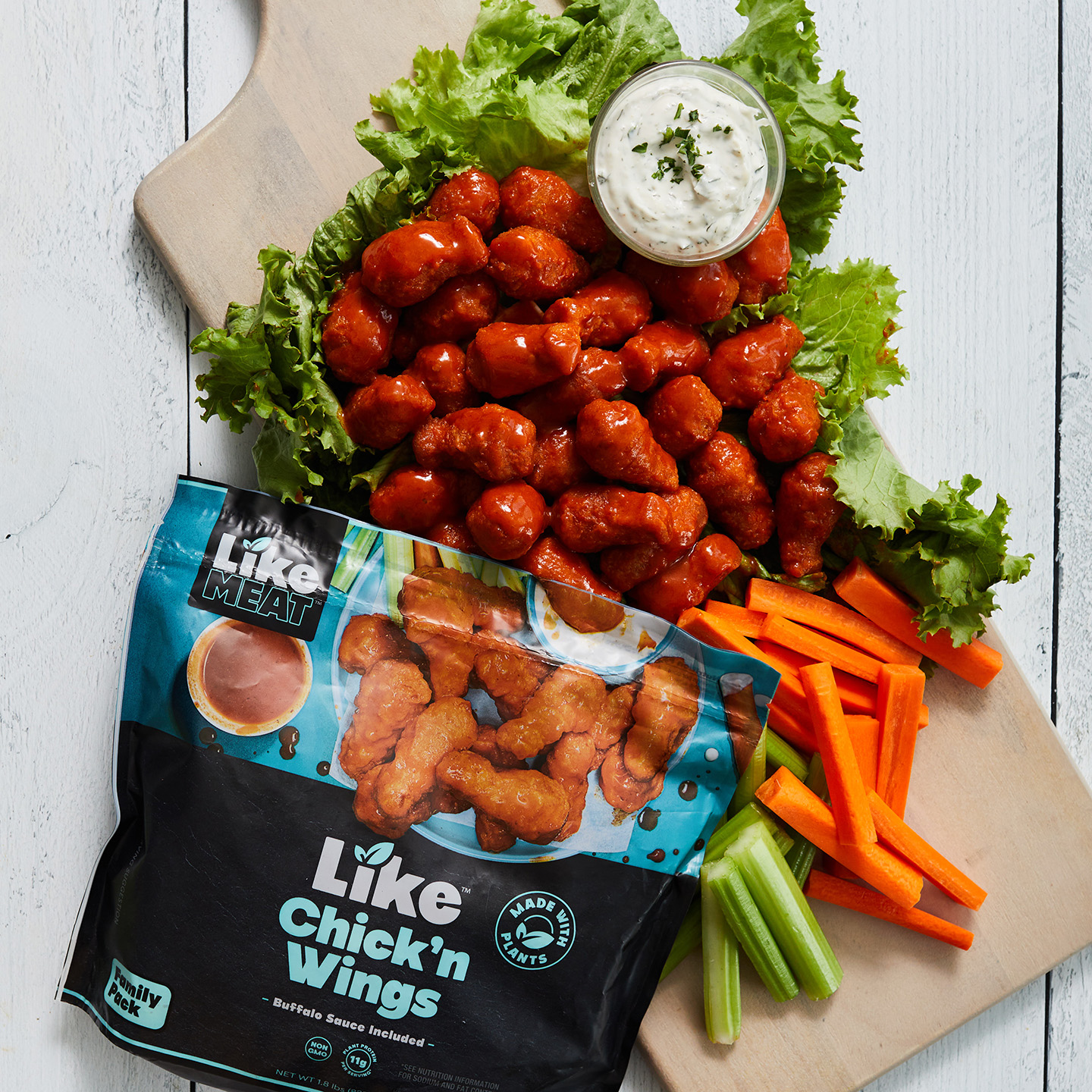
Interview
The Livekindly Collective rides “natural consolidator” meat-free wave in “potential $1.5tln category”
The Livekindly Collective remains upbeat about the prospects for plant-based meat, which CEO Kees Kruythoff envisages being a US$1.5tln addressable market. Simon Harvey reports.
T
he Livekindly Collective is on a mission: to take part in the consolidation of the global plant-based meat market. And CEO Kees Kruythoff is shrugging off any concerns about the future trajectory of the category.
The Dutchman spent more than two decades at Unilever before joining The Livekindly Collective in 2020.
Tellingly, amid growing questions about just how big the plant-based meat category can become, Kruythoff envisages it being a US$1.5tln addressable market worldwide.
As a privately-owned company, he says The Livekindly Collective will not be pinned down on what proportion of that estimate the business already commands.
However, with $535m of investor backing, including from Germany’s PHW Gruppe and a minority stake held by South Africa’s RCL Foods, The Livekindly Collective is planning further M&A as it seeks to transform animal-free meat consumption into the “new norm”.
“We will continue to do M&A. I’m sure in 2022 we’ll see another one, two acquisitions,” Amsterdam-based Kruythoff tells Just Food.
The Livekindly Collective’s management team, which also includes former Kraft Heinz executive David Knopf as CFO, and ex-Tyson Foods executive Malik Sadiq as COO, has a three-pronged strategy, Kruythoff explains, of “accelerate the core, go into new markets and M&A”.
He adds: “We have quite a lot of M&A capability and expertise in our business. We are very well funded, so financially we are a natural consolidator. Managerial wise, we are a natural consolidator as well because we have a best-in-class management team and a lot of experience and expertise, both in acquisitions and integration.”
Kruythoff characterises integration as “creating the opportunity to accelerate the growth and the impact” on the road to a new norm for plant-based meat. “The best way to do that is to make sure that we grow fast because the more we sell, the more impact we have.”
Known until 2020 as Foods United, the business has grown through M&A and now has a diverse portfolio under its wings, with products ranging from alternative burgers, chicken, ribs and bratwurst, to koftas, kebabs, pizza and pasties.

Industry watchers believe there needs to be more choice beyond plant-based burgers, sausages and mince to drive growth in the category, particularly in chicken.
Kruythoff points to The Livekindly Collective’s recent launch of alternatives to chicken wings in the US, a product area he sees as a “strategically blue ocean”.
However, he rules out venturing into other areas of plant-based protein, such as alternatives to dairy and seafood, to focus on the “core”, adding: “We will be totally focused on meat-free. Strategy is about choices and we are quite broad in terms of the brand portfolio, which is very unique in our model versus the rest of the market.
“Markets develop in a certain way and so, after the first part of innovation, you then get segmentation and consolidation in the marketplace. The segmentation is linked to our model of brand portfolio. That market [meat-free] in itself is a $1.5tln total addressable market. That is very, very sizeable and there’s no need whatsoever to go into other parts of the industry.”
Market trajectory
The plant-based meat market is no stranger to ambitious companies. Meati Foods, for instance, a US start-up with former General Mills executive Scott Tassani sitting as president, is targeting sales for its mycelium-based products of $1bn by 2025.
for a business that only got off the ground in 2019.
Kruythoff, however, rejects talk consumer demand for alternative meats is easing and is adamant growth will only accelerate amid heightened environmental awareness and as prices become more competitive with conventional proteins.
In recent quarters, announcements from Beyond Meat and Maple Leaf Foods have sparked questions about the trajectory of the market in the US – and also caused some analysts to speculate any slowdown may also be seen in the UK, Europe’s largest market in the meat-free category ahead of Germany, where The Livekindly Collective first launched.
US retail sales of meat substitutes reached $1.5bn in 2020, rising at a compound annual growth rate of 13.3% from $800m in 2015, according to GlobalData. Nevertheless, Just Food’s parent company forecasts a slowdown to a CAGR of 10.8% through to 2025, estimated at a market value of $2.5bn.
In the UK, growth is expected to flatten out. Sales climbed to $712.5m in 2021, representing a five-year CAGR of 7.3%, quickening from the equivalent rate of 4.9% to 2020. The 7.3% rate is forecast to be maintained to 2026, when sales are envisaged at $1.01bn.
Kruythoff has no reservations about growth in the US. The Livekindly Collective has taken its No Meat brand of chicken pieces and nuggets into Walmart, and the same chain is stocking its LikeMeat chicken wings across more than 3,600 stores.
“Is there an issue in market development and the growth in the US? The answer is no. The market development towards plant-based chicken as the next growth curve of the total categories is an absolutely critical one. The second one is that it will grow from frozen into chilled and that is the other part where actually the market will grow faster.”
International variation
The Livekindly Collective has spread its business geographically through M&A, buying The Fry Family Food Co. in South Africa, Oumph in Sweden, LikeMeat in Germany, No Meat in the UK – bought from frozen food retailer Iceland – and most recently, The Dutch Weed Burger business in the Netherlands. It has also launched its own brands in China with Giggling Pig and Happy Chicken, and a yet-to-be unveiled new development coming up in Australia, an existing market.
Kruythoff says Germany, the UK and South Africa are The Livekindly Collective’s core markets (followed by the US as a relatively new destination).
He expects to see continued “accelerated growth” in Germany and a similar picture in the UK in the frozen meat-free category. Penetration and repeat purchase rates are also going up as awareness around the environment intensifies.
Nevertheless, data from Kantar, albeit in the wider scheme of things, suggests category growth in plant-based in the UK is slowing.
Retail sales of chilled and frozen meat alternatives such as sausages and mince, as well as vegetarian “meal centres”, ready meals and snacks like sausage rolls, rose 4.3% to GBP601m (US$815.5m) in the year to 26 January 2022, Kantar says. That compares to 23% growth from 2020 to 2021.
Further afield in China, where The Livekindly Collective launched its first products developed in-house with Giggling Pig and Happy Chicken last summer, growth is likely to be more mixed.
Kruythoff adds: “What you will see, as always, is that things are a little bit slower. The experience there is that you go slow to go fast in China and that is basically what we are doing.”
Looking ahead to progression across individual markets, it essentially comes down to take-off rates and adoption, and so might differ over timeframes.
“If it is in 2022, very clearly Germany is our biggest market. If you would look at it in five years, that probably will be the US. If you look at it in ten years, maybe it’s China.”
Kruythoff continues: “In the UK, the Netherlands and Germany, we have the highest per capita consumption of alternative meat, plant-based meat, in the world. All in all, these markets will always go a little bit up and down.
“I think we shouldn’t get nervous about that but, more importantly, the total trend is there. Consumers love to eat less meat, especially millennials and Gen Z. This is something that is there to stay. If anything, it is something where we will only see accelerated growth.”
A more level playing field is needed between plant-based meats and animal counterparts for prices will come down even further, he suggests.
“If you get real scale into plant-based, and you get through-costs in the system, and governments stop taking zero VAT on animal meat, and they do that on plant-based, all those things will normalise. Then you will see very rapidly the price parity will be there.
“It’s a no-brainer for consumers, especially if they know what the difference is in terms of the environmental footprint, water usage, land usage, and the like. We are in no doubt that this will accelerate. It’s a total food transformation.”